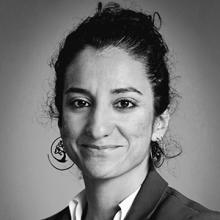Is math a realm of timeless, universal truths? If equations are made up, how do we know they’re right? Josh questions why and how math is useful, and he thinks that math doesn’t tell us anything new about the world. In contrast, Ray believes that math gets at deep truths and describes the fundamental structure of the universe.
The hosts welcome Arezoo Islami, Professor of Philosophy at San Francisco State University, to the show. Arezoo discusses how math is an invention on the basis of discovery along with the relationship between geometric ideals and real-life measurements. Ray asks about the limitations of Euclidean geometry, and Arezoo explains how different systems of geometry are necessary to study different universes. Josh questions why imaginary numbers were so controversial when they were first discovered, and Arezoo describes the importance of new ideas in math fitting in with the rest of mathematics. She believes that math is a conceptual tool that helps us solve problems in the world and extends our reach in the universe.
In the last segment of the show, Josh, Ray, and Arezoo discuss the limits of mathematical knowledge, being naturally talented at math, and its ability to connect people across time and cultures. Arezoo believes that math helps us grow our knowledge of the universe, but Josh pushes back by saying that it might show us the limits to human knowledge instead. Ray asks why revolutions don’t exist in mathematics the same way they do in science, but Arezoo points out that they are simply unrecognized in the way we learn math in schools. Given the power, she would have more philosophers teach math and give everyone a chance to fall in love with its beauty regardless of their natural talent.
- Roving Philosophical Report (Seek to 3:46) → Holly J. McDede talks to other people who also love math to find out exactly why they love it.
- Sixty-Second Philosopher (Seek to 45:19) → Ian Shoales examines how algorithms influence movies, TV scripts, and stories of all kinds.
